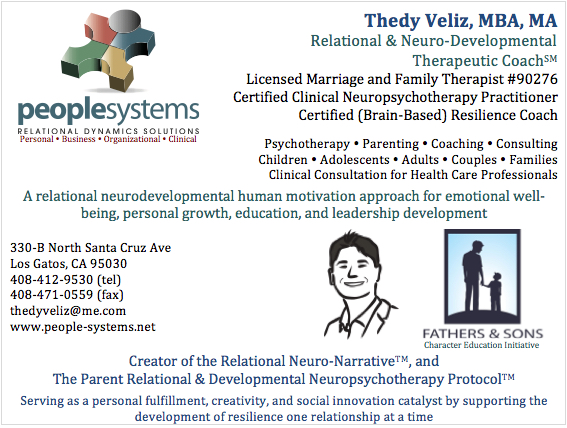Working with High Performing Adults
My Road Less Traveled Story
It was a hot Texas afternoon in 1999, and I was getting ready to have an experience that would have a big impact on my life. I had signed up for an adult education course entitled ‘The Road Less Traveled.’ The class description promised to discuss the teachings of Scott Peck’s best selling book by the same name (Peck, 1978).
I arrived early, and as I entered the classroom listed on the confirmation letter, I found myself with around 30 people in their 60s. I wondered if I might have signed up for a ‘retirement class.’ Yet the other participants assured me I was in the right place.
The instructor arrived right on time, and without introducing himself asked us to go around the room and share why we had signed up for the class. What happened next had a huge impact on the way that I conceptualize human development. As people started to share, I sat in my chair with tears in my eyes as I heard the same story over and over again.
The common theme was that although they had all done very well financially, they felt empty as they were getting ready to enter their golden years. They were concerned about having missed the essence of their lives despite their many achievements. They wondered if they had experienced true love or perhaps they had been too busy to allow this to happen. Yet one thing they felt pretty sure about was that the centrality of their pursuit of money, status and power throughout their lives was related to these feelings of dissatisfaction.

The class was being offered by Southern Methodist University’s (SMU) Adult Education Program in Dallas. Most of the participants were residents of the very exclusive neighborhoods that surround this prestigious university. The participants were mostly former captains of industry – CEOs and senior executives. They were well off financially, yet they felt cheated by their companies, society, friends, and sometimes even by their spouses. They wondered what had gone wrong and they were in desperate need to ‘fix it’ before it was too late.
And there I was at age twenty nine feeling speechless, and thinking that I was very lucky to be seeing what my life was destined to be if I didn’t take action. I had just competed my MBA from the University of Notre Dame, and I was traveling first class all over the world as a member of ARCO International’s mergers and acquisitions team. I had a high profile position and I was good at my job, but somehow it just did not feel satisfying… Listening to the participants of this class gave me the insight that would have taken me much more time to acquire.
I knew that many of the people that I had worked with in the corporate world felt overworked and stressed, underappreciated, and at times trapped because of the compensation packages that they had. However, I did not know this phenomena cut through all income brackets. The SMU seminar introduced me to this reality, which became cemented during the time that I spent working with executives at technology companies when I moved to Silicon Valley.

My Motivation
I work with High Performance Adults because I don’t believe that people need to be in their 60s to realize that perhaps there was more to life than what they experienced. Most people start feeling the symptoms of this condition early on. It is possible that it is so pervasive, that we all learn to just deal with it… But, it does not have to be this way…
From Dysthymic Symptoms to Human Freedom
In some cases adults might feel stuck. They might find themselves feeling ‘blah’ – ‘like the wind has been taken out of their sails.’ They might find themselves wondering if ‘this is all there is to life.’ They might have felt this way before, but trusted family members, friends and advisors might have pointed towards the positive in their lives and provided coping skills in an attempt to ‘redirect’ their developmental concerns.
I call this people ‘high performance adults’ because by all measurable success standards, they have ‘made it.’ They might be happily married, have an established career, and/or be financially stable, but they don’t feel fulfilled. But, most importantly unlike most people, they are willing to address their discomfort. Some might even feel like they don’t have the right to express these feelings because according to society’s definition of success, they should have no reason to be unsatisfied.
Some might feel like they don’t deserve their accomplishments, while others might wonder if they have lived their own lives or someone else’s. Others might be financially independent, and are wondering how to redirect their lives now that working for a living is not necessary. Finally, some might be realizing that they have achieved success being motivated by fear, yet now that they had the financial security that they wanted the fear does not seem to subside.

Some might start to wonder how they can design the rest of their lives. They might be thinking about switching careers, going back to school, moving to a different location, or designing a ‘retirement career.’ They might feel very isolated and lonely even though they might be surrounded by the people they love. All of a sudden they might be concerned with further exploring their faith or spirituality, wondering about the source of meaning in life, and contributing to the greater good – concerns they might have never before been interested in.
The symptoms might be subtle and because of their success and status those around them might choose not to notice their restlessness. In many cases they are suffering from dysthymia – a mild form of depression that the person might have been living with for so long that they don’t even think there is a problem. They might have learned to use coping skills to keep going, or they might have distracted themselves with a new pursuit (e.g., an exotic vacation, an exciting business deal, hobby, a risky love affair, the latest electronic gadget). Typical symptoms pertaining to dysthymia per the Diagnostics and Statistics Manual 5th Edition, include poor appetite or overeating, insomnia, low energy, poor concentration, and feelings of hopelessness (American Psychiatric Association, 2013). These symptoms might also manifest as restlessness and irritability, and an overall feeling of dissatisfaction and lack of motivation. At times popular psychology refers to this condition as a midlife crisis, although these symptoms have been known to surface much earlier as well (Robbins & Wilner, 2001; Macko & Rubin, 2004).
Some might have even invested in their own psychotherapy, but might be wondering if the treatment helped them to ‘become better adjusted’ instead of acting as a catalyst to help them understand why they appear to not be well adjusted.

When using the People Systems Relational & Neuro-Developmental Approach to Human Dynamics, I interpret these symptoms as communicating that ‘something’ is not right which requires attention. This ‘something’ can encompass many different dynamics, but at the core the common attribute is that the person does not feel ‘whole’ or well integrated. The person might feel like he has been trying to be everything to everyone while ignoring his own needs. The person might have been making decisions based on ‘primitive narratives’ that are no longer accurate due to the person’s evolution. Thus, the person might benefit from developing an updated adult narrative – what I call a Relational Neuro-Narrative™.
In working with High Performing Adults, many experience a sense of relief when they start to realize that they had been suffering from dysthymia for quite some time, in many cases since they were very young, and they had successfully learned to focus on achievement to avoid experiencing these feelings of uneasiness. Eventually some start to realize that it does not matter how much they achieve, their achievement path appears to be keeping them trapped. By learning to understand that focusing on achievement was required for their survival when they were younger, this defensive approach is not needed anymore.

In addition to the neurodevelopmental research that I started to conduct after my Esalen Institute seminar in May 2002 and my academic and clinical experience, the work that I conduct with High Performing Adults is influenced by Marsha Sinetar and her work with ‘self-actualizing’ people (Sinetar 1986; Sinetar 1987; Sinetar 1988; Sinetar 1995), along with the many researchers and authors on various topics including the pursuit of a vocation & teaching (Palmer, 1998; Palmer 2000), creating a new career (Jarow, 1995; Sinetar, 1987; Sinetar, 1995), the balance between intimacy and independence (Dowrick, 1991), spiritual growth (Peck, 1978; Moore, 2004; May 2004; Alter 2000; Moore 1992; Epstein, 1998), integrative spirituality (Martin, 2006; Nouwen, 1981; Fox, 2014), finding authenticity (Levoy, 1997), simple living (Shi, 1985; Elgin, 1993; Pierce, 2000), the market persona (Sennett, 1998; Sennett, 2006), creativity (Arieti, 1976; Dacey & Lennon, 1998), solitude (Storr, 1988; Fisher, 2001), discernment (Palmer, 1990; Palmer, 2004), financial freedom (Dominguez & Robin, 1992), stress & the mind-body connection (Maté, 2003; Seyle, 1976; Pert, 1997), work ethic and capitalism (Weber, 1930; Tawney, 1926), extreme capitalism (Reich, 2007), consumerism (Kasser & Kanner, 2004; James, 2007; ), materialism (Kasser, 2002; Schor, 1998; Schwartz, 2004), happiness & success (Kets de Vries, 2000), erosion of the social fabric (Putnam, 2001; Sachs, 2012; Stiles, 2005, Twenge, 2006), psychological freedom (McMurphy, 1991; McMurphy, 1993; Fromm, 1947; Fromm, 1956; Fromm, 1976; Fromm, 1981; May, 1981), wisdom during the second half of life (Sinetar, 2002; Gerzon, 1992), workaholism (Philipson, 2002; Schor, 1992; Killinger, 1991), personal branding (Hill, 1937; Porter et al., 1998), and freedom and society (Fromm, 1941; May, 1953; Fromm, 1955); that I found while working on my personal development and which supported my transition away from my corporate career in engineering design and finance management and into the various roles which resulted in me currently functioning as what I call a Relational Neuro-Developmental Therapeutic-Coach℠.

My goal was to familiarize myself with the systems that affect our ability to increase our fulfillment capacity. In doing so, I slowly went through a process of exposing my preconceived ideas to different perspectives in order to arrive at a more comprehensive understanding – a process that I believe eventually leads to a sense of freedom and peace. I don’t necessarily agree with everything that I have read or learned, but it has all fueled by developmental path, which is constantly evolving.
The overall message here is to understand the social dynamics that affect our choices, so that we can use these dynamics to our advantage in designing a life that not only provides financial rewards to live a comfortable life, but that also supports the developmental space for a sense of peace and fulfillment to emerge – a state which exemplifies what I call Psychological Freedom.

References
- Alter, R. M., & Alter, J. (2000). The Transformative Power of Crisis: Our Journey to Psychological Healing and Spiritual Awakening. New York, NY: ReganBooks.
- American Psychiatric Association. (2013). Diagnostic and statistical manual of mental disorders: DSM-5. Washington, D.C: American Psychiatric Association.
- Arieti, S. (1976). Creativity: The magic synthesis. New York, NY: Basic Books.
- Dacey, J. S., Lennon, K., & Fiore, L. B. (1998). Understanding creativity: The interplay of biological, psychological, and social factors. San Francisco, CA: Jossey-Bass.
- De Vries, M. F. K. (2000). The Happiness Equation: Meditations on Happiness and Success. London, England: Vermilion.
- Dominguez, J., & Robin, V. (1992). Your money or your life: Transforming your relationship with money and achieving financial independence. New York, NY: Penguin.
- Dowrick, S. (1991). Intimacy and solitude: Balancing closeness and independence. New York, NY: W. W. Norton.
- Elgin, D. (1993). Voluntary simplicity: Toward a way of life that is outwardly simple, inwardly rich. New York, NY: Quill.
- Epstein, M. (1998). Going to pieces without falling apart: A Buddhist perspective on wholeness. New York, NY: Broadway Books.
- Fisher, L. L. (2001). Celebrating time alone: Stories of splendid solitude. Hillsboro, OR: Beyond Words Publishing.
- Fox, M. (2014). Meister Eckhart: A Mystic-Warrior for Our Times. Novato, CA: New World Library.
- Fromm, E. (1941). Escape from freedom. New York, NY: Owl Books.
- Fromm, E. (1947). Man for himself: An inquiry into the psychology of ethics. New York, NY: Herny Holt.
- Fromm, E. (1955). The sane society. New York, NY: Owl Books.
- Fromm, E. (1956). The art of loving. New York, NY: Harper & Row.
- Fromm, E. (1976). To have or to be? New York, NY: Bantam Books.
- Fromm, E. (1981). On disobedience: Why freedom means saying" no" to power. New York, NY: HarperPerennial.
- Gerzon, M. (1992). Listening to midlife: Turning your crisis into a quest. Boston, MA: Shambhala Publications.
- Hill, N. (1937). Think and grow rich. New York, NY: Fawcett Columbine.
- James, O. (2007). Affluenza: How to be successful and stay sane. London, England: Vermilion.
- Jarow, R. (1995). Creating the work you love: courage, commitment, and career. Rochester, VT: Destiny Books.
- Kasser, T. (2002). The high price of materialism. Cambridge, MA: Bradford.
- Kasser, T. E., & Kanner, A. D. (2004). Psychology and consumer culture: The struggle for a good life in a materialistic world. American Psychological Association.
- Killinger, B. (1991). Workaholics: The Respectable Addicts. New York, NY: Firestone.
- Levoy, G. (1997). Callings: Finding and following an authentic life. New York, NY: Three Rivers Press.
- Macko, L., & Rubin, K. (2004). Midlife Crisis at 30: How the Stakes Have Changed for a New Generation--and what to Do about it. New York, NY: Rodale.
- Martin, J. (2006). Becoming who you are: Insights on the true self from Thomas Merton and other saints. Mahwah, NJ: HiddenSpring.
- Maté, G. (2003). When the body says no: Understanding the stress-disease connection. Hoboken, NJ: John Wiley & Sons.
- May, G. G. (2004). The dark night of the soul: A psychiatrist explores the connection between darkness and spiritual growth. New York, NY: HarperSanFrancisco.
- May, R. (1953). Man's search for himself: How we can find a center of strength within ourselves to face and conquer the insecurities of this troubled age. New York, NY: Signet.
- May, R. (1981). Freedom and destiny. New York, NY: W. W. Norton.
- McMurphy, J. H. (1993). Living Deliberately: Experiments in Practical Spirituality. Dallas, TX: Amaranth Publishing.
- McMurphy, J. H. (1991). Secrets from Great Minds. Dallas, TX: Amaranth Publishing.
- Moore, T. (1992). Care of the Soul: A Guide for Cultivating Depth and Sacredness in Everyday Life. New York, NY: HarperPerennial.
- Moore, T. (2004). Dark nights of the soul: A guide to finding your way through life's ordeals. New York, NY: Gotham Books
- Nouwen, H. J. (1981) The Way of the Heart: Connecting with God through Prayer, Wisdom, and Silence. New York, NY: Ballantine Books.
- Palmer, P. J. (1990). The active life: A spirituality of work, creativity, and caring. San Francisco, CA: Jossey-Bass.
- Palmer, P. J. (1998). The courage to teach: Exploring the inner landscape of a teacher's life. San Francisco, CA: Jossey-Bass.
- Palmer, P. J. (2000). Let your life speak: Listening for the voice of vocation. San Francisco, CA: Jossey-Bass.
- Palmer, P. J. (2004). The Journey toward an Undivided Life–Welcoming the Soul and Weaving Community in a Wounded World. San Francisco, CA: Jossey-Bass.
- Pert, C. (1997). Molecules of emotion: The science behind body-mind medicine. New York, NY: Touchstone.
- Philipson, I. (2002). Married to the job: Why we live to work and what we can do about it. New York, NY: Free Press.
- Pierce, L. B. (2000). Choosing simplicity: Real people finding peace and fulfillment in a complex world. Carmel, CA: Gallagher Press.
- Porter, S., Porter, K. J., & Bennett, C. (1998). Me, Myself and I, Inc: 10 Steps to Career Independence. Manassas Park, VA: Impact Publications.
- Putnam, R. D. (2001). Bowling alone: The collapse and revival of American community. New York, NY: Simon and Schuster.
- Reich, R. B. (2007). Supercapitalism: The transformation of business, democracy, and everyday life. New York, NY: Knopf.
- Robbins, A., & Wilner, A. Quarterlife Crisis: The Unique Challenges of Life in Your Twenties. New York, NY: Tarcher Penguin.
- Sachs, J. (2012). The price of civilization: Reawakening American virtue and prosperity. New York, NY: Random House.
- Schor, J. B. (1991). The Overworked American: The unexpected decline of leisure. New York, NY: BasicBooks.
- Schor Juliet, B. (1998). The Overspent American: Why We Want What We Don’t Need. New York, NY: HarperPerennial.
- Schwartz, B. (2004). The paradox of choice: Why less is more. New York, NY: Ecco.
- Sennett, R. (1998). The corrosion of character: The personal consequences of work in the new capitalism. New York, NY: W. W. Norton.
- Sennett, R. (2006). The culture of the new capitalism. New Haven, CT: Yale University Press.
- Selye, H. (1976). The stress of life. New York, NY: McGraw-Hill.
- Shi, D. E. (1985). The simple life: Plain living and high thinking in American culture. New York, NY: Oxford University Press.
- Sinetar, M. (1986). Ordinary people as monks and mystics: Lifestyles for self-discovery. Mahwah, NJ: Paulist Press.
- Sinetar, M. (1987). Do what you love, the money will follow: Discovering your right livelihood. New York, NY: Dell.
- Sinetar, M. (1988). Elegant choices, healing choices. Mahwah, NJ: Paulist Press.
- Sinetar, M. (1995). To Build the Life You Want, Create the Work You Love: The Spiritual Dimension of Entrepreneuring. New York, NY: St. Martin’s Griffin.
- Sinetar, M. (2002). Don't Call Me Old, I'm Just Awakening: Spiritual Encouragement for Later Life. New York: NY: Paulist Press.
- Stiles, P. (2005). Is the American Dream Killing You?: How" the Market" Rules Our Lives. New York, NY: Collins.
- Storr, A. (1998). Solitude: A return to the self. New York, NY: Ballantine Books.
- Tawney, R. H. (1926). Religion and the rise of capitalism. New York, NY: Mentor Books.
- Twenge, J. M. (2006). Generation me-revised and updated: Why today's young Americans are more confident, assertive, entitled--and more miserable than ever before. New York, NY: Free Press.
- Weber, M. (1930). The protestant ethic and the spirit of capitalism. London, England: Routledge.
